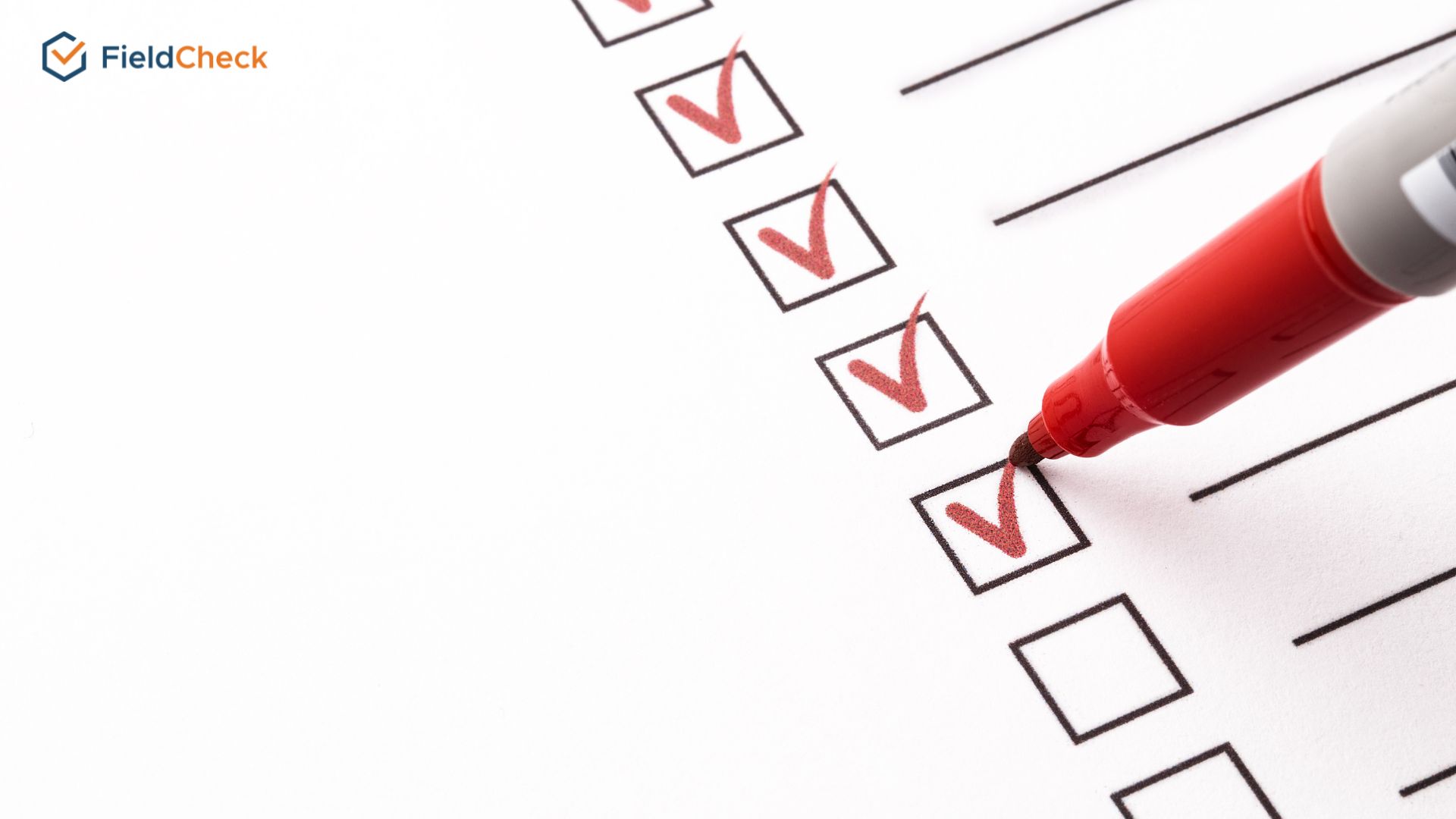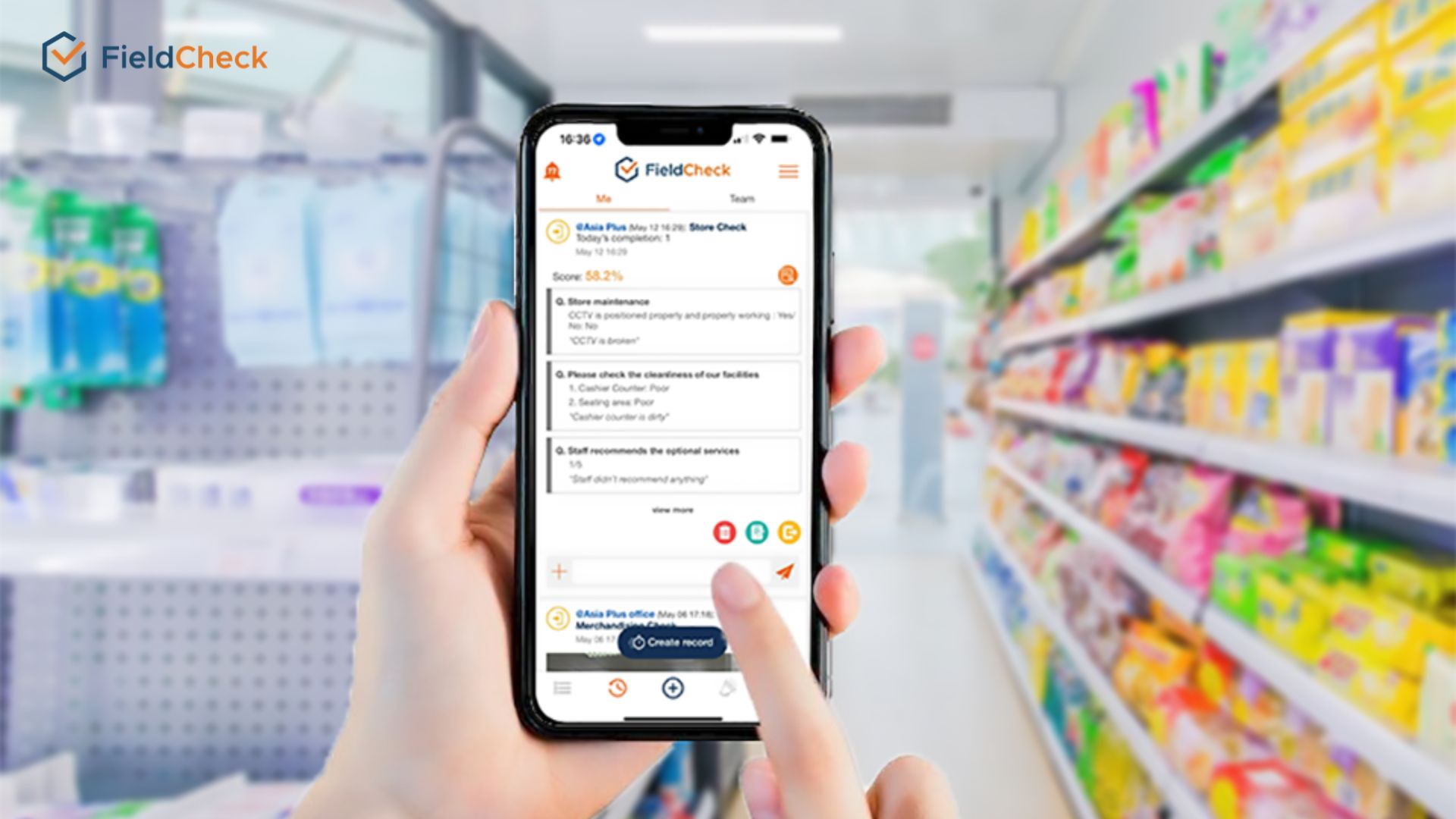

Store visits or store inspections are also known as retail store audits - an important activity in the retail industry to ensure compliance with brand standards at retail stores and check if the store's operation is running smoothly. In addition, some other key missions of retail audits are to increase customer satisfaction, revenue and limit business risks. Whether you are just starting to plan a retail audit or you have already conducted several audits and want to improve your audit list, it is a good idea to go through the steps to create a checklist for your business. Therefore, we would like to share with you some useful techniques for creating a store audit checklist . Read on and learn more!
A retail store audit checklist is a smart and useful tool, with a series of important items listed down in a form. It allows retailers to monitor and control the status of retail outlets and check standards as well as detect deficiencies in store operation for timely resolution.

Store audit checklist also helps business managers check the company's policies and standards in sales, as well as monitor if the programs that are assigned to each store are deployed correctly or not. In addition, with the store audit checklist, store managers and retail auditors can monitor inventory levels, assess the effectiveness of product displays, and store staff productivity, and ensure the elements of safety and hygiene for the store.
More than that, maintaining the ability to organize and place products in the right places to drive sales is essential, which is why a retail store checklist is so important. such an important role.

The audit list should be aligned with the practitioner's natural migration path. The example should start from outside the main entrance, around the interior aisle and the windows, and end at the exit at the back of the store.
When designing a checklist for a store audit, you will need to pay attention to the following issues that need to be checked:
The layout of the outside of the store is an important factor in deciding whether the store will impress customers or not. You can use the checklist to check on hygiene, window display, or how to use POSM to attract customers. Some questions you can ask:
You may not know, 86% of retailer reports say there is a correlation between sales and the effectiveness of visual merchandising. When your chain stores execute the display plan well, you can increase the percentage of products sold.
Using a visual merchandising checklist will help your display strategies be properly implemented and deliver positive results. Some questions you can add to your checklist include:

Integrating the food hygiene and safety checklist at the store will help avoid customer complaints about store service and other headaches.
Gary Johnson, Senior Associate at Prevention Advisors, states, "The audit process becomes an incentive for people to comply and to have a better work attitude."
Some questions in the related checklist:
The staff's attitude and service skills are factors that determine whether the store can retain customers and turn them into loyal customers. Therefore, when operating a chain store business, you must provide adequate sales skills training for your employees.
In addition, observing and managing the working process of employees will help ensure the consistency of service quality at the store and, at the same time, contribute to improving the shopping experience of customers at the store.
Your checklist should probably include the following:

A checklist of people and training contribute to improving the capacity and skills of employees working at the store. In addition to being trained in the store's culture and goals, employees will have a greater sense of work and feel a connection between themselves and the store.
From there, they will be more motivated to work at the store, improving their productivity.
Ensuring in-store equipment works properly will help maximize the customer experience when shopping in-store. Any problem related to damaged equipment can negatively affect customer satisfaction.
Loss prevention and cash flow management are two practical factors that retailers focus on. The current situation shows that the problem of theft inside and outside causes shop owners to lose a large amount.
Checking the number of goods at the store and inventory regularly will help the management closely monitor the situation of goods at the store, avoiding losses.
In addition, the store owner also ensures that the goods are always available when customers need them, avoiding the risk of losing sales opportunities due to management errors in goods and warehouses.

Promotion is always one of the most stimulating methods of shopping. To optimize the effectiveness of the promotion strategy, store owners will need to keep a close eye on the stock situation at the store, the listed selling price, and customer demand for each product type.
When any batch of products is in stock for a fairly long time, chain store owners will need to consider reasonable promotions to increase sales for these products.
Effective retail inventory management leads to lower costs and a better understanding of the sales model. Retail inventory management tools and methods give retailers more information to run their businesses better. Some issues that companies need to pay attention to:

Keeping restrooms clean and tidy also helps to make an impression on customers in the store. Therefore, to ensure a good image of the store, the store owner needs to monitor and manage the cleaning work regularly and closely. Using checklists for store auditing will make this easier for supervisors.
Fire safety checks should also be conducted at all stores. Regular audits of anti-explosion measures will avoid fire hazards and avoid causing significant damage to the business.
In addition, the next step to help retailers conduct an effective retail audit is to organize the items to be inspected in groups. The ranking criterion will be the importance of each item.
You can sort the importance ascending or descending. It is important to set the criteria clearly so that the auditor or staff can use the checklist easily.
Another important criterion when creating checklists is to design them in detail, clearly, and easily. You can use pre-designed templates on applications that allow creating checklists to save time.

You can insert "apply" and "don't apply" options to increase flexibility when using checklists when going for audits. The reason is that for some stores or at different stages, some items will not need to be checked.
For example, for a visual merchandising audit at the time of the festival, you will be able to do a certain audit during the holiday period but not after that.
One of the ways to help you make the right and effective checklists is to involve the personnel involved in that checklist. Their opinions and comments will help you design a questionnaire for a realistic checklist and more closely follow the store situation.
In the past, most stores performed audits through spreadsheets or papers. The auditors will use paper samples or spreadsheets to visit each store to assess the quality of operations.
This method has been used for quite some time, so most people are used to it. However, paper checklists and spreadsheets can suffer from some of the following disadvantages:
However, the spreadsheet does not produce real-time and automatic statistics immediately upon in-store evaluation.
Facing the above problems, some digital service providers have launched retail audit software or digital checklist applications to help store owners and retailers perform audits efficiently and conveniently.

FieldCheck is one of those apps that makes it easy to do an audit with a digital checklist without any coding knowledge. The questionnaire can be easily created on the admin tool and then sent to the relevant personnel to perform the audit task.
Some of the benefits of this SaaS solution include the following:
Are you interested in any of the above features and benefits from our digital solution? Contact us today. The dedicated team of consultants from FieldCheck will try to come up with the optimal solution for your business. Good luck!
Learn how FieldCheck can assist your business today